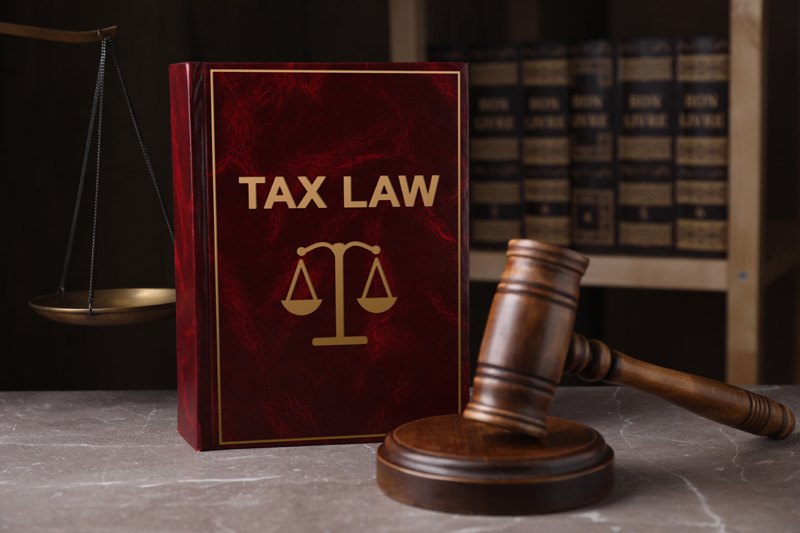
There is a consistent demand in the legal employment market for a tax lawyer. The practice is large and growing so long as federal law regulations on taxes exist, tax courts and tax return filing will remain. It offers many opportunities for lawyers with the right skills and interests. Others claim lawyers in this practice area are the most satisfied among their peers.
Taxation can be taken up in law school and could be expounded further without overwhelming the law student. As taxpayers and businesses need guidance in the filing of forms every tax year, this field of law is lucrative and income will come by.
The practice area provides a fertile ground for an exceptionally dynamic and varied, one that is notoriously complex and highly detailed. For those who specialize in the tax code, there are many strengths and advantages to working in this field. In particular, a tax practice can remain quite vital during times of economic crisis. So long as a tax is imposed on almost all products and services to keep governments and economies afloat, lawyers in this practice area have a job to do. The tax law field is large and growing. It offers many opportunities for lawyers with the right skills and interests. Tax law is a complex and ever-changing area of law because of its political cohesiveness. Tax lawyers must be able to understand, update and apply the latest changes if there are compliance issues necessary as required by new tax laws.

Are you ready to become a tax lawyer? Here are the 5 Reasons Why You Should Take Up Tax Law as your practice area.
The Professional Satisfaction and Stability of the Tax Law Practice.
Tax attorneys can also derive much professional satisfaction in providing individual and corporate clients with expert guidance and strategic advice on how to structure and manage their businesses, financial affairs, transactions, investments, and other assets in a manner that minimizes the burden of taxes and protects the integrity of their corporate, individual or family assets.
Federal, state, and local governments provide an extensive system of schools, a complex physical infrastructure, a national defense, and numerous other social services – all at great cost. Our governments impose taxes on a wide range of goods and activities – including the transfer of property at death – to finance these expenditures. The laws that impose and regulate these taxes can be quite complex and require expert guidance to decipher.

Tax lawyers have a wide range of matters on which they can work. They can offer tax planning and structuring advice for businesses and tax-exempt organizations; tax litigation and the representation of individuals or businesses with matters before the IRS or other tax courts or authorities; employee benefits and the administration of pension, profit-sharing, employee stock ownership, and 401(k) plans.
Many tax issues also arise in the context of personal estate planning and the use of gifts and trusts to minimize the impact of taxes on an individual’s estate as it is transferred to beneficiaries. Trusts and estate attorneys usually have a working knowledge of basic individual and corporate income tax rules and regulations, and all tax lawyers generally should have some working knowledge of the specialized problems presented by wealth transfers.

Trusts and Estates Planning for Solo Practice or Mid-Sized Firms
Trusts & estates are a core practice area for many solo practitioners, small firms, and mid-sized firms. It is also a specialty practice in large national and international law firms.
Clients of all levels of wealth look to attorneys with experience in trusts & estates for advice on how to transfer property during their lifetime and death in a manner that is tax-sensitive and appropriate for the client’s family.
Trusts & estates lawyers have been called “the last of the great generalist lawyers,” because they are often asked to give advice on matters far beyond basic wills and trusts. Trusts & estates lawyers must understand succession planning for family-owned businesses, charitable giving, matrimonial law, family law, elder law, real estate law, taxation, corporations, and partnerships, among other topics.

There are several job options for tax lawyers.
A. Law Firms.
Many large law firms have departments that specialize in tax issues and service their corporate clients, which typically include large multinational companies, banks, and investment or large hedge funds. Small-to-mid-size firms may have several attorneys that specialize in tax law. Corporate tax attorneys often advise companies on issues such as how to structure a merger, acquisition, divestiture, restructuring, or other transaction.Tax attorneys may also advise clients on tax controversy matters, such as representing a client in an IRS tax audit and appeals. Many large law firms also have small trusts & estates practices that service their corporate clients and high-net-worth individuals. More often, trusts & estates lawyers practice as solo practitioners or at small or mid-sized firms (with fewer than 50 lawyers).
Large law firms typically recruit through on-campus interviewing or accept letters of interest from students in the fall preceding the summer of employment. The small-to-mid-size firms rarely recruit on campus but are open to receiving letters of interest from students.

B. Corporations
Companies, particularly those in the financial services arena, face many tax-related issues and often have tax lawyers among their in-house legal departments. In-house tax attorneys might work on matters relating to, among others, retail banking products, mortgages and loan products, merger and acquisition due diligence, and information reporting and withholding.Corporations such as Citigroup, JPMorgan, Bank of America, US Trust, BNY/Mellon, and Goldman Sachs, among others, provide some sort of estate-planning/trust administration/wealth advisory services to high-net-worth clients through their private banking services.
Jobs may go by names like “Trust Officer” or “Wealth Management Advisory.
These positions will typically be posted on the company’s website and require several years of practical legal experience, typically at a law firm or in another corporation.

C. Accounting Firms
The Big Four accounting firms (Ernst & Young, PriceWaterhouseCoopers, KPMG, and Deloitte) hire many JD holders for positions in their tax and audit departments. Generally, accounting firms prefer someone who has an undergraduate degree in finance or accounting or a strong JD background in tax-related classes. Jobs for lawyers at accounting firms can be found on the company websites. These employers from time to time will recruit on campus.
D. Government
Federal, state, and local governments have many opportunities for lawyers who are interested in tax and trusts, and estate work.Federal Government. Various federal government agencies administer tax laws. In addition to the Internal Revenue Service (IRS), which alone employs over 1,500 attorneys (www.irs.gov/), the U.S. Treasury Department http://www.treasury.gov/careers/), and the Tax Division of the U.S. Department of Justice (http://www.justice.gov/tax/) both employ hundreds of tax lawyers.

E. Exempt Organizations
Major charities like the United Way, American Cancer Society, the Audubon Society, and university counsel offices almost all have one or more lawyers who focus exclusively on planned giving. These types of jobs typically require several years of practical legal experience.F. Clerkships
If you are pursuing a career in tax law, a clerkship with the United States Tax Court, located in Washington, DC, provides an excellent training ground. Judicial clerks perform legal research, digesting, drafting, and conducting related assignments on tax cases tried before the Judge or Special Trial Judge. Any judicial clerkship experience is a good foundation for future practice, in trusts & estates or otherwise.
G. Policy-Related Work
There are several policy-oriented think tanks, mostly in Washington, DC, that hire young lawyers to research tax-related policy issues – such as the Effectiveness of the Alternative Minimum Tax and the impact of estate taxes on entrepreneurship – and file amicus curiae (“friend of the court”) briefs in key court cases, as well as monitor, analyze, and develop innovative ideas in tax law (e.g., Tax Policy Center, the Tax Foundation).
Experience a more work-life balance compared to other practice areas.

Salaries are more than ‘decent’ and at times high-paying.
Lawyers who work in the tax profession see strong earnings. The average annual base pay for lawyers is $133,580 and this can vary based on where you end up practicing; however, it's worth noting that smaller companies or urban areas will likely offer higher salaries than other places do ($99561-$110462).
You may not be able to earn as much money in the long run, but if you are looking for other desirable aspects of this job like more flexible hours and stability then it could very well be worth your while.

Your tax law expertise can go a long way and save families and enterprises in the long term.
We all know how expensive taxes are—but did you also realize they have a huge impact on our everyday lives? Tax law can make the difference between keeping businesses afloat and ensuring families remain financially stable.
In this day and age, it’s not just about saving a few dollars on your taxes. The law can make a real difference for business owners who need to stay afloat or protect their family's finances; tax attorneys are there with guidance when you need them most!
As a tax attorney, you'll find that the niche is fairly limited but there are ways to specialize even further and develop skills in demand by employers.
As a tax lawyer, you might focus your practice on:
- Compliance
- Audits and appeals
- Corporate tax
- Employee benefits
- Tax-exempt organizations
- International tax law
- Estate planning
- Litigation
- Mergers and acquisitions
- Real estate or other transactional work
- State and local tax
Conclusion
When you're considering the practice area you will focus on, don't overlook the joys of studying taxation. It's not required that your degree comes in accounting or any other number-related field; all students need is some background knowledge on how numbers work and they'll be well set up for success after graduation!
The possibilities are endless when it comes to tax law. Whether you want a more hands-on approach or prefer behind-the-scenes work, there’s something for everyone in this field.
FAQs
As with any practice area, membership in bar association sections or committees can provide invaluable networking and learning opportunities. Listed below are national, tri-state, and regional bar associations that have tax and/or trusts & estates related committees or sections and other professional associations such as The American Bar Association and the The New York State Bar Association, Tax, and Trusts& Estates, among other important organizations.

Related articles:
Taxes: No Longer Just for Accountants
The Benefits of Choosing a Career as a Tax Attorney
Tax Attorney Jobs in the US — Helping Taxpayers Navigate the Tax Maze




